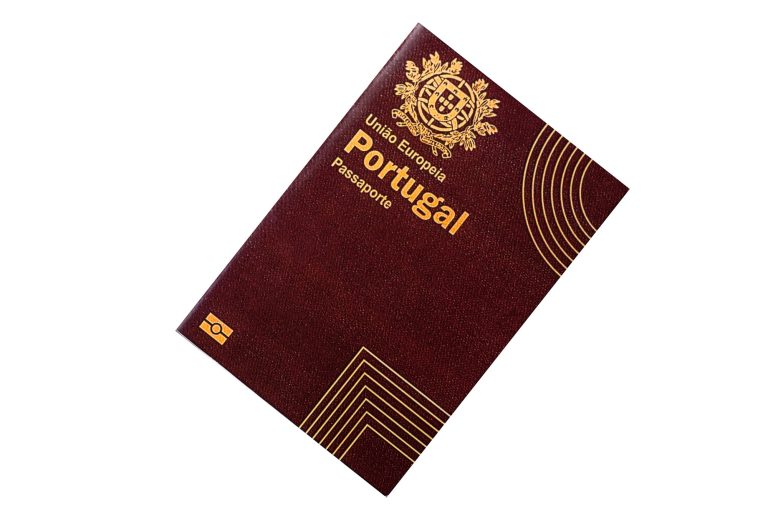Complete Guide to Average Salaries in Portugal for Expats 2025: What Foreign Workers Can Expect to Earn
Planning to work in Portugal? Understanding salary expectations is crucial for your relocation journey. This comprehensive guide by Access Portugal reveals everything about average salaries in Portugal, high-paying professions, and special tax advantages for foreign workers. Whether you’re considering the D1 work visa or exploring opportunities as a skilled professional, this guide provides essential insights for your financial planning.
Average Salary in Portugal: Current Overview
Portugal’s average gross monthly salary stands at €1,314, translating to €18,396 annually including Christmas and holiday bonuses. This positions Portugal as having the sixth lowest average gross yearly salary among OECD countries at €24,557 ($28,410). While these figures might seem modest compared to other European nations, they reflect Portugal’s lower cost of living and create unique opportunities for expats.
Understanding salary structures in Portugal involves recognizing several key components. Portuguese workers receive 14 monthly payments annually – 12 regular monthly salaries plus two additional payments (Christmas and holiday subsidies). This payment structure is standard across most employment contracts and significantly impacts your annual income calculations.
The minimum wage in Portugal has seen steady increases, reaching €760 per month in 2023. This baseline helps contextualize other salary offerings and demonstrates the government’s commitment to improving worker compensation. For foreign professionals considering moving to Portugal, these figures provide essential context for financial planning.
Access Portugal assists numerous expats in understanding their earning potential and navigating employment contracts. Our expertise reveals that while base salaries might appear lower than in other European countries, the combination of lower living costs and potential tax benefits often results in comparable or better purchasing power.
How Portugal’s Salaries Compare Internationally
When evaluating Portugal’s salary landscape, international comparisons provide valuable perspective for expats considering relocation. Here’s how Portugal stacks up against other OECD countries:
Average Gross Yearly Salaries (Purchasing Power Parity):
| Country | Average Gross Yearly Salary (EUR) |
|---|---|
| United States | €59,981 |
| United Kingdom | €40,753 |
| France | €39,399 |
| Spain | €34,508 |
| Italy | €32,647 |
| Portugal | €24,557 |
| Mexico | €14,290 |
While Portugal’s average salary appears lower, several factors make it attractive for foreign workers. The country’s strategic location, quality of life, and special tax regimes often compensate for the salary differential. Many expats working remotely for international companies maintain their higher salaries while benefiting from Portugal’s lower costs.
The salary gap between Portugal and neighboring Spain (€34,508) represents approximately 29%, yet Portugal offers comparable lifestyle quality in many aspects. This differential becomes even more favorable when considering Portugal’s Non-Habitual Resident (NHR) tax regime, which can significantly reduce tax obligations for qualifying professionals.
Understanding these comparisons helps expats make informed decisions about relocation. Access Portugal regularly advises clients who successfully negotiate salaries that account for local standards while leveraging their international experience and qualifications.
Salary Variations by Education Level
Education significantly impacts earning potential in Portugal, with university graduates commanding substantially higher salaries. This educational premium creates opportunities for qualified foreign professionals entering the Portuguese job market.

Average Monthly Base Salaries by Professional Level:
- High-level executives: €2,104.30 (109% above national average)
- Mid-level executives: €1,484.60 (48% above national average)
- General workers: €1,005.10 (national average)
- Non-qualified professionals: €646.70 (36% below national average)
The correlation between education and earnings extends beyond formal degrees. Professional certifications, specialized training, and international experience often command premium salaries in Portugal’s evolving economy. Industries particularly valuing advanced education include technology, healthcare, engineering, and financial services.
For expats holding advanced degrees or specialized qualifications, Portugal’s job market offers compelling opportunities. Many international companies operating in Portugal actively seek multilingual professionals with global experience, often offering salaries above local averages. The combination of educational credentials and international background positions foreign workers advantageously in salary negotiations.
Access Portugal has observed that professionals with master’s degrees or equivalent qualifications typically earn 40-60% more than those with bachelor’s degrees alone. This educational premium becomes even more pronounced in sectors experiencing skill shortages, where qualified professionals can command significantly higher compensation packages.
Highest Paying Professions in Portugal
Portugal’s highest-paying positions concentrate in management, technology, healthcare, and specialized professional services. Understanding these salary ranges helps expats target opportunities aligned with their expertise and income expectations. 🎯
Top Management Annual Salaries in Lisbon:
- General Manager (Industry): €110,000 – €170,000
- Legal Manager (Large Companies): €148,000 – €160,000
- Associate Lawyer (10 years experience): €120,000
- Plant Manager: €72,000 – €120,000
- Chief Information Officer: €70,000 – €120,000
- Administrative & Financial Manager: €49,000 – €105,000
- IT Director: €40,000 – €100,000
- Marketing Director: €44,800 – €92,000
- Operations Director (Engineering): €62,000 – €92,000
- Head of Human Resources: €55,000 – €84,000
Beyond traditional corporate roles, Portugal’s growing startup ecosystem creates opportunities for tech professionals. Software developers, data scientists, and cybersecurity experts command premium salaries, particularly in Lisbon’s thriving tech hub. International experience and specialized skills in emerging technologies often translate to compensation packages exceeding local averages.
Regional Salary Differences: Lisbon vs Porto vs Other Cities
Salary variations across Portugal reflect economic concentration, industry presence, and living costs in different regions. Understanding these regional differences helps expats choose locations that balance income potential with lifestyle preferences.
Lisbon leads in salary offerings, with averages 15-25% higher than the national mean. The capital’s concentration of multinational corporations, tech companies, and financial institutions drives higher compensation. IT professionals in Lisbon earn approximately €35,000-€60,000 annually, compared to €28,000-€45,000 in other regions.
Porto, Portugal’s second-largest city, offers salaries typically 5-10% below Lisbon but with significantly lower living costs. The city’s growing reputation as a tech and creative hub attracts international companies offering competitive packages. Manufacturing and export-oriented businesses in Porto’s metropolitan area provide strong opportunities for engineering and operations professionals.
Other regions present unique advantages despite lower average salaries. The Algarve’s tourism industry offers seasonal premiums and year-round opportunities in hospitality management. Central Portugal’s manufacturing corridor provides stable employment in automotive and industrial sectors. Remote work arrangements increasingly allow professionals to earn Lisbon-level salaries while enjoying lower costs in smaller cities.
Access Portugal helps clients evaluate regional opportunities beyond pure salary comparisons. Factors like quality of life, housing costs, and tax implications often make regions outside major cities financially attractive for expats.
Tax Benefits for Foreign Workers: NHR Status
Portugal’s Non-Habitual Resident (NHR) regime transforms the country into one of Europe’s most tax-efficient destinations for foreign professionals. This special tax status can dramatically improve net income for qualifying individuals over a 10-year period. 💼
The NHR regime offers a flat 20% tax rate on Portuguese-sourced income for professionals in high-value activities, compared to standard rates reaching 48%. Foreign-sourced income, including pensions, may qualify for exemption or reduced taxation depending on tax treaties and income type.
High-Value Professions Qualifying for NHR Benefits:
Architects, engineers, medical professionals, university professors, IT specialists, researchers, artists, and senior managers all qualify for preferential treatment. The comprehensive list includes traditional professions and emerging fields like data science and biotechnology research.
To qualify for NHR status, individuals must not have been Portuguese tax residents in the previous five years and must establish tax residency in Portugal. The application process requires careful documentation and timing. Access Portugal guides clients through each step, ensuring proper registration and maximizing available benefits.
The financial impact of NHR status can be substantial. A software engineer earning €50,000 annually saves approximately €7,000 in taxes compared to standard rates. Combined with Portugal’s D7 visa for passive income or D2 visa for entrepreneurs, the NHR regime creates compelling opportunities for location-independent professionals.
Cost of Living vs Salary Expectations
Understanding the relationship between salaries and living costs reveals Portugal’s true financial proposition for expats. While nominal salaries appear lower than Northern European standards, purchasing power often surprises newcomers favorably.
Monthly Living Costs (Single Person):
- Lisbon: €800-€1,200 (excluding rent)
- Porto: €700-€1,000 (excluding rent)
- Smaller cities: €600-€900 (excluding rent)
Housing represents the largest variable expense. Lisbon rental prices range from €700-€1,500 for one-bedroom apartments, while similar accommodations in smaller cities cost €400-€800. The recent surge in demand has increased prices, but options remain diverse.
Essential expenses remain remarkably affordable. Monthly public transport passes cost €40 in Lisbon and €30 in Porto. Restaurant meals average €8-€12 for lunch, while grocery costs typically run 20-30% below Northern European levels. Private health insurance ranges from €30-€100 monthly, depending on coverage and age.
For professionals earning €2,000-€3,000 monthly, Portugal offers comfortable living with savings potential. The combination of moderate salaries and reasonable costs creates financial balance often superior to high-salary, high-cost locations. Access Portugal’s clients frequently report improved quality of life despite nominal salary reductions when relocating from more expensive countries.
Negotiating Your Salary in Portugal
Successful salary negotiation in Portugal requires understanding local customs, market rates, and employer expectations. Foreign professionals often have advantages in negotiations, particularly when bringing specialized skills or international experience. 🤝
Portuguese employers typically present initial offers below maximum budgets, expecting negotiation. A 10-15% negotiation range is common and acceptable. Beyond base salary, consider the complete compensation package including meal allowances (€4.77-€7.63 daily), health insurance, transportation subsidies, and performance bonuses.
Key negotiation strategies include:
Research Market Rates: Use platforms like Glassdoor Portugal and local salary surveys. Access Portugal provides clients with industry-specific salary benchmarks based on current market conditions.
Highlight International Experience: Emphasize language skills, global perspective, and cross-cultural competencies. These attributes command premiums in Portugal’s increasingly international business environment.
Consider Total Compensation: Portuguese employment often includes benefits not reflected in base salary. Company cars, meal cards, and private health insurance add significant value.
Timing Matters: Negotiate during initial hiring rather than expecting substantial increases later. Annual raises typically range from 2-5%, making initial negotiation crucial.
Document Everything: Ensure all agreed terms appear in the written contract. Portuguese labor law strongly protects employees, but clarity prevents misunderstandings.
For positions requiring work permits, employers often show flexibility to attract international talent. Access Portugal assists clients in presenting compelling cases that justify premium compensation while respecting local norms.
Frequently Asked Questions
Q: What is the average salary in Portugal for IT professionals? A: IT professionals in Portugal earn between €25,000-€60,000 annually, depending on specialization and experience. Senior developers and architects in Lisbon can earn €45,000-€70,000, while entry-level positions start around €20,000-€25,000.
Q: How does Portugal’s minimum wage compare to living costs? A: Portugal’s minimum wage of €760 monthly provides basic living in smaller cities but proves challenging in Lisbon or Porto. Most expats earn significantly above minimum wage, with average salaries of €1,314 monthly offering comfortable living standards.
Q: Can I maintain my home country salary while working remotely from Portugal? A: Yes, many expats maintain foreign salaries while living in Portugal. The D7 visa and D8 Digital Nomad visa facilitate this arrangement. Proper tax planning through NHR status optimizes this situation.
Q: What salary should I expect with a master’s degree? A: Master’s degree holders typically earn 40-60% above bachelor’s degree salaries. In fields like engineering or finance, master’s graduates can expect starting salaries of €25,000-€35,000, reaching €50,000-€80,000 with experience.
Q: Are salaries in Portugal negotiable? A: Yes, Portuguese employers expect salary negotiations. Initial offers typically leave 10-15% negotiation room. International candidates often secure higher packages by emphasizing unique skills and experience.
Q: How do Portuguese salaries compare after taxes? A: Net salaries vary significantly based on gross income and tax status. Standard tax rates create net salaries of 65-70% of gross for middle incomes. NHR status can increase net income to 80% of gross for qualifying professionals.
Q: Which cities offer the best salary-to-cost ratio? A: Braga, Coimbra, and Aveiro offer excellent salary-to-cost ratios. These cities provide 80-90% of Lisbon salaries with 60-70% living costs. Remote workers find these locations particularly attractive.
Q: Do Portuguese companies offer relocation packages? A: International companies and larger Portuguese firms sometimes offer relocation assistance. Packages may include temporary housing, moving expenses, and visa support. Negotiate these benefits during initial discussions.
Understanding Portugal’s salary landscape empowers expats to make informed relocation decisions. While average salaries appear modest compared to some European countries, the combination of reasonable living costs, quality of life, and tax advantages creates compelling opportunities for foreign professionals.
The key to maximizing your earning potential in Portugal lies in strategic planning. Selecting the right visa, optimizing tax status through NHR registration, and targeting high-demand sectors positions you for financial success. Whether you’re an IT professional exploring Lisbon’s tech scene or a remote worker seeking coastal living, Portugal offers diverse paths to professional and personal fulfillment.
Access Portugal specializes in helping international professionals navigate every aspect of working in Portugal. From visa applications to tax optimization and salary negotiations, our expertise ensures you maximize opportunities in your Portuguese career journey. Contact us today to discuss how we can support your successful transition to working and living in Portugal. 🇵🇹







